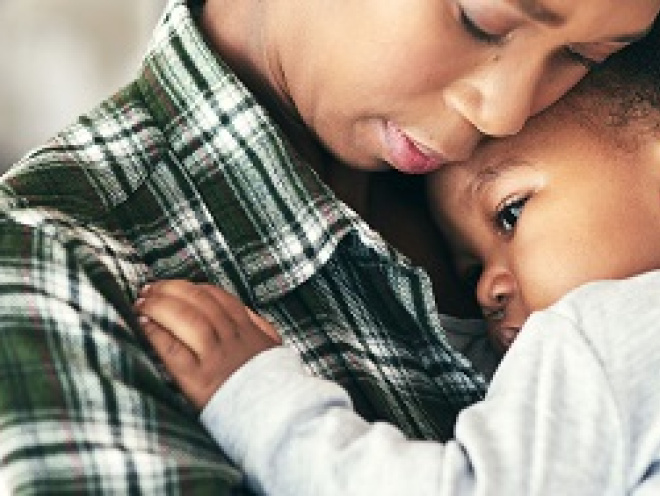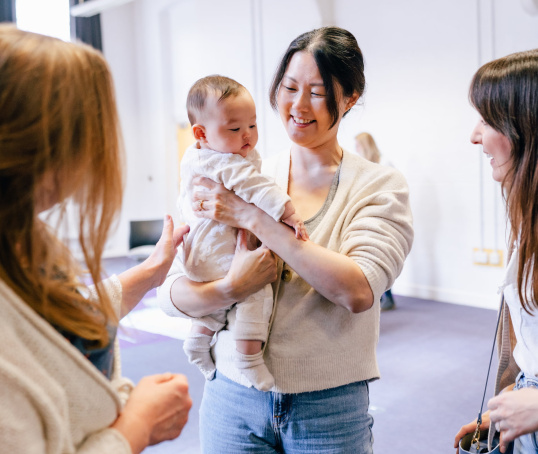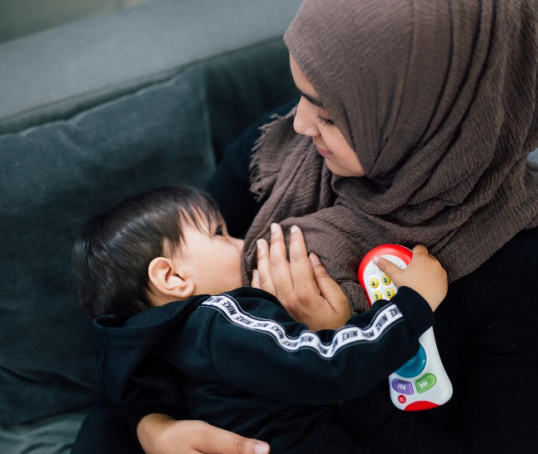Here we explore the theory and practice of mindful parenting to help you to decide whether this style (or elements of it) might be right for you.
If you haven’t yet practised mindfulness, chances are you’ve heard of it. Judging by the amount of coverage, available apps and celebrity advocates, mindfulness has become increasingly popular over the last decade (Waters, 2016).
So what exactly is mindful parenting?
Professor Jon Kabat-Zinn (2003) defines mindfulness as the awareness that comes from ‘paying attention in a particular way, on purpose, in the present moment, non-judgmentally.’ Unsurprisingly, mindful parenting takes those principles and applies them to how you parent (Duncan et al, 2009; Shorey and Ng, 2021).
How can I be a mindful parent?
The basic principles of mindful parenting are:
- listening to your child with your full attention
- non-judgementally accepting yourself and your child
- being emotionally aware of yourself and your child
- using self-regulation in your relationship with your child
- having compassion for yourself and your child.
(Wong et al, 2019)
The benefits of mindful parenting
A quick look at some of the positive outcomes of being a mindful parent soon shows why this style has potential.
Mindful parenting can help with understanding
A big part of mindfulness is being aware of what’s happening moment-to-moment, and giving your full attention to it. If you can do this while remaining open and non-judgmental, this could help you to stay calm as a parent. A bonus is that it might also help with disagreements and stresses with your partner too (Bögels et al, 2010).
Mindful parenting can improve respect
Mindful parenting might even make you more likely to engage, talk things through, and give you and your child more time and space for expression (Williams and Wahler, 2009). The result? You might be less likely to view your child as difficult, and the relationship with your child becomes more supportive (Wong et al, 2019).
The knock-on effect of this style of parenting is that it can lead to better and more open communication throughout the relationship (Lippold et al, 2014). So when your toddler grows up into a bolshie pre-teen, they might be more willing to share their thoughts and feelings with you. You’ve both established a relationship of respect.
We can’t guarantee a complete absence of slammed doors and shouting matches but mindful parenting just might help.
Mindful parenting lets you parent how you really want to
This style can include mindful listening, emotional awareness, compassion and non-judgmental acceptance (Duncan et al, 2009). So that’s how it can help bring moment-to-moment awareness to the parent–child relationship. And help parents get closer to parenting in the way they always wanted (Duncan et al, 2015). It can help parents pay closer attention to their children and be more aware of their own emotions.
By being more in the moment with your child, you have more of a chance to choose how you behave, rather than defaulting to old habits (Duncan et al, 2015).
Mindful parenting diffuses stress
Of course, you know you need to give your child love and emotional support (Eshel et al, 2006). But you might not know how being in the moment and accepting your child and their behaviour (within reason) can be so positive.
When you’re coping well and feeling good, you’re probably more caring and affectionate. This improves your child’s wellbeing, adjustment and behaviour (Laurent et al, 2017). But stress makes parents become colder, more controlling, more rejecting and more reactive towards their children (Lupien et al, 2009).
Becoming more aware of your emotions in the moment gives you a chance to press the pause button rather than automatically getting angry and frustrated. This more child-centred approach (i.e. it’s not all about you and how you feel) is better at meeting children’s needs (Dix, 1991).
Mindful parenting lets you focus on the positive, not just the negative
In the early years of life, what gets a parent’s attention more? A well-executed gurgle or a blood-curdling scream? We all know a yowl of fear, pain or frustration will always get our attention. But if we only listen out for the negative, there’s a possibility we’ll never experience the positive.
By being fully attentive, and not just watching out for signs of distress or discomfort, children feel safer and more protected by their parents (Fonagy and Target, 1997; Siegel, 2001). This could mean they’re more likely to come to you with concerns in the future.
Mindful parenting can be more compassionate
Mindful parenting makes active compassion towards yourself and your child extra important. It’s natural to want to meet the needs of your baby and comfort them through any distress. Mindful parenting focuses that compassion so children may feel more affection and support.
This sense of compassion applies to you and your partner too, so you take a less harsh and more forgiving view of your parenting efforts. Rather than getting frustrated and giving up, giving yourself a break lets you regroup and try again. Self-compassion avoids the blame game and can stop you feeling judged as a parent. This might just reduce the stress levels next time darling toddler decides to rearrange the shelves in your local Tesco.
When you constantly mark yourself out of ten, this can make a big difference to how you behave around your child and parent them (Teti and Gelfand, 1991). Parents who believe they are doing OK at this parenting lark have been seen to interact with their kids in a way that helps their development (Coleman and Karraker, 2003).
It’s worth remembering that no-one is judging you as harshly as you are judging yourself. A mindful approach could help you focus on what you achieve as a parent, rather than defaulting to harsh critic mode.
In his book about ‘good enough’ parenting, Bruno Bettelheim warns us not to strive for perfection. And he’s not just talking about us as parents but our children too. It is all about respect for the child and a focus on the present, rather than constant stressing about the future. He suggests we focus on empathy and reflection, rather than slavishly following what experts say. Like we say, no-one knows your baby like you do (Bettelheim, 1987).
Mindful parenting can help children with emotional regulation
It has been suggested that the use of mindfulness in the parent–child relationship may promote enhanced children’s emotional regulation (Duncan et al, 2009). This, in turn, could help with decision making as they get older (Wong et al, 2019).
So is it right for me?
Mindfulness can flex to fit most lifestyles and parenting approaches. You don’t have to become a Buddhist monk to be in the moment either.
It might not be for everyone but if you feel like you’re never getting on top of things and are missing out on what matters, mindful parenting is worth exploring. There’s a boatload of books, programmes, podcasts, apps and courses out there that cover mindfulness. Just ask your nearest search engine.
This page was last reviewed in February 2022.
Further information
Read further articles on parenting styles in our dedicated section.
For more advice and ideas when it comes to all aspects of parenting, see our other articles on parenting styles, such as our one on the most popular styles and how to identify yours, through to how to raise my child to be happy, confident and considerate.
Our support line offers practical and emotional support with feeding your baby and general enquiries for parents, members and volunteers: 0300 330 0700.
You might find attending one of our NCT New Baby courses helpful as they give you the opportunity to explore different approaches to important parenting issues with a qualified group leader and other new parents in your area.
Make friends with other parents-to-be and new parents in your local area for support and friendship by seeing what NCT activities are happening nearby.
Bögels S, Lehtonen A, Restifo K. (2010) Mindful parenting in mental health care. Mindfulness. 1(2):107-120. Available at: https://doi.org/10.1007/s12671-010-0014-5
Bettelheim B. (1987) A Good Enough Parent. Random House USA Inc, New York.
Coleman PK, Karraker KH. (2003) Maternal self-efficacy beliefs, competence in parenting, and toddlers' behavior and developmental status. Infant Ment Health J. 24(2):126-148. Available at: https://doi.org/10.1002/imhj.10048
Dix T. (1991) The affective organization of parenting: adaptive and maladaptive processes. Psychol Bull. 110(1):3-25. Available at: https://doi.org/10.1037/0033-2909.110.1.3
Duncan LG, Coatsworth JD, Greenberg MT. (2009) A model of mindful parenting: implications for parent-child relationships and prevention research. Clin Child Fam Psychol Rev. 12(3):255-70. Available at: https://doi.org/10.1007/s10567-009-0046-3
Duncan LG, Coatsworth JD, Gayles JG, Geier MH, Greenberg MT. (2015) Can mindful parenting be observed? Relations between observational ratings of mother-youth interactions and mothers' self-report of mindful parenting. Journal of family psychology. J Fam Psychol. 29(2):276-282. Available at: https://doi.org/10.1037/a0038857
Eshel N, Daelmans B, de Mello MC, Martines J. (2006) Responsive parenting: interventions and outcomes. Bull World Health Organ. 84(12):991-998. Available at: https://doi.org/10.2471/blt.06.030163
Fonagy P, Target M. (1997) Attachment and reflective function: their role in self-organization. Dev Psychopathol. Fall. 9(4):679-700. Available from: https://doi.org/10.1177/0003065115602447
Kabat-Zinn J. (2003) Mindfulness‐based interventions in context: past, present, and future. Clin Psychol. 10:144-156. Available at: https://doi.org/10.1093/clipsy.bpg016
Laurent HK, Duncan LG, Lightcap A, Khan F. (2017) Mindful parenting predicts mothers’ and infants’ hypothalamic-pituitary-adrenal activity during a dyadic stressor. Dev Psychol. 53:417–424. Available at: https://doi.org/10.1037/dev0000258
Lippold MA, Greenberg MT, Graham JW, Feinberg ME. (2014) Unpacking the effect of parental monitoring on early adolescent problem behavior: mediation by parental knowledge and moderation by parent–youth warmth. J Fam Issues. 35(13):1800-1823. Available at: https://doi.org/10.1177/0192513X13484120
Lupien SJ, McEwen BS, Gunnar MR, Heim C. (2009) Effects of stress throughout the lifespan on the brain, behavior, and cognition. Nat Rev Neurosci. 10(6):434-445. Available at: https://doi.org/10.1038/nrn2639
Siegel DJ. (2001) Toward an interpersonal neurobiology of the developing mind: attachment relationships, “mindsight,” and neural integration. Infant Ment Health J. 22(1-2):67-94. Available at: https://doi.org/10.1002/1097-0355(200101/04)22:1<67::AID-IMHJ3>3.0.CO;2…
Shorey S, Ng ED. (2021) The efficacy of mindful parenting interventions: A systematic review and meta-analysis. Int J Nurs Stud. 121:103996.
Teti DM, Gelfand DM. (1991) Behavioral competence among mothers of infants in the first year: the mediational role of maternal self‐efficacy. Child Dev. 62(5):918-929. Available at: https:doi.org/10.1111/j.1467-8624.1991.tb01580.x
Waters L. (2016) The relationship between child stress, child mindfulness and parent mindfulness. Psychology. 7:40-51. Available at: https://doi.org/10.4236/psych.2016.71006
Williams K, Wahler R. (2009) Are mindful parents more authoritative and less authoritarian? An analysis of clinic-referred mothers. J Child Fam Stud. 19(2):230-235. Available at: https://doi.org/10.1007/s10826-009-9309-3
Wong K, Hicks LM, Seuntjens TG, Trentacosta CJ, Hendriksen THG, Zeelenberg M, et al. (2019) The role of mindful parenting in individual and social decision-making in children. Front Psychol. 10:550. Available at: https://doi.org/10.3389/fpsyg.2019.00550




